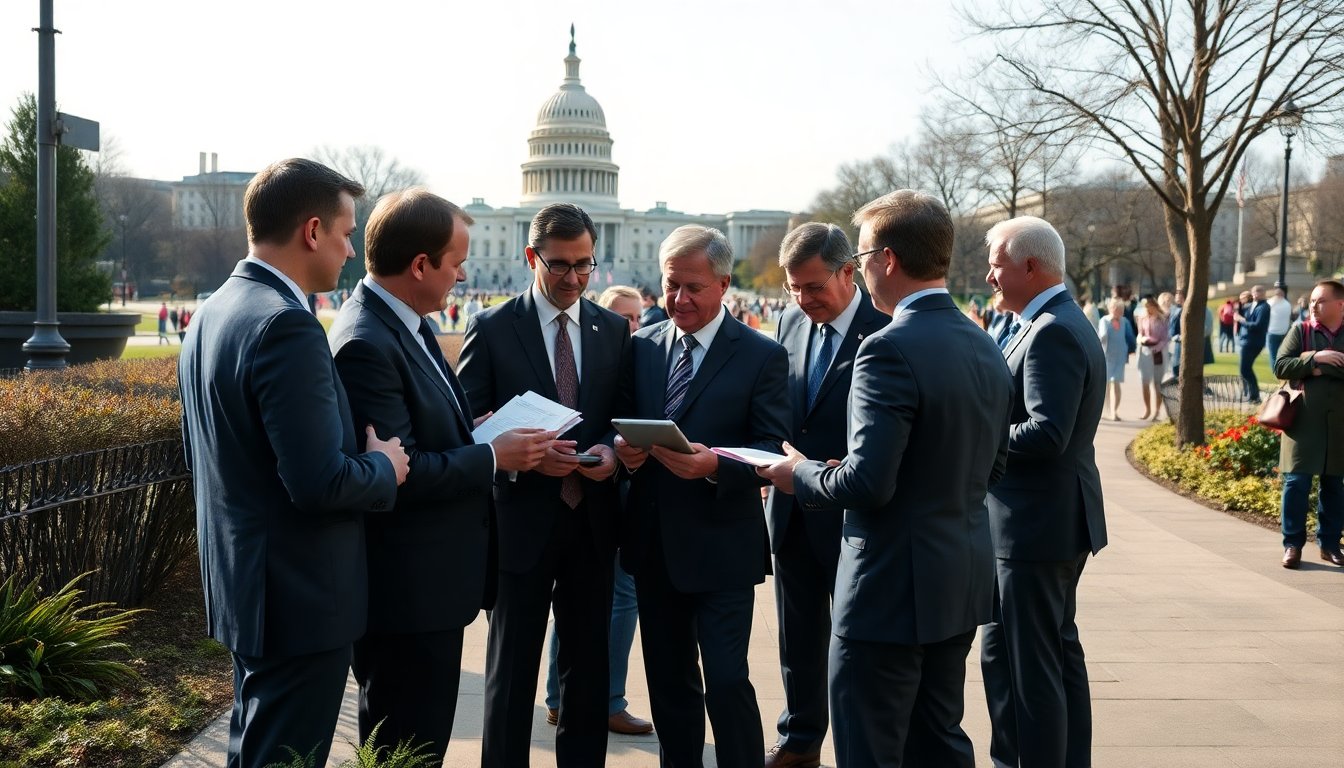Table of Contents
The far-right political group, Alternative for Germany (AfD), is set to visit Washington, D.C., following an invitation from a faction of House Republicans. This trip, scheduled for December, aims to strengthen ties with American political allies who share similar ideologies. U.S. Representative Anna Paulina Luna confirmed that around 40 AfD members will participate, underscoring the increasing transatlantic cooperation among far-right parties.
Context of the visit
The invitation comes as leaders of the Alternative for Germany (AfD) party become increasingly vocal about claims of political persecution within the country. They are seeking solidarity from U.S. politicians, presenting their struggle as a defense against what they view as government censorship and repression. Luna has shown support for the AfD’s perspective, likening the German government’s actions to the authoritarian practices historically associated with the Soviet Union.
Support from U.S. conservatives
Key figures from the previous Trump administration have expressed support for the Alternative für Deutschland (AfD). When Germany’s federal domestic intelligence agency designated the party as extremist, U.S. Secretary of State Marco Rubio criticized this decision, labeling it a pretext for authoritarianism. Furthermore, during the Munich Security Conference, Vice President JD Vance called on European leaders to remove obstacles that hinder far-right parties from engaging in governance.
The AfD’s domestic challenges
Germany’s postwar constitution allows domestic intelligence to monitor political entities classified as extremist. This initiative aims to prevent a resurgence of the Nazi regime. Such a framework enables potential party bans, making the AfD’s claims of persecution controversial. Party leaders view their invitation to Washington as an opportunity to enhance their legitimacy and bolster their narrative domestically.
Engagement with U.S. allies
Recently, Luna used social media to invite AfD co-leader Alice Weidel to visit the United States. Weidel responded positively, expressing her eagerness to engage in further discussions. This initiative is regarded as a strategic move by the AfD to establish connections with potential U.S. allies who may support their cause and amplify their message on the international stage.
Broader implications of the visit
The December trip is anticipated to lead to a more comprehensive conference next year, aimed at promoting national sovereignty. Luna has stated that this conference will serve as a counterpoint to events such as Davos, emphasizing nationalist agendas over globalist perspectives.
Additionally, members of the AfD are not only seeking political backing but are also working to normalize their presence within international far-right circles. Recent meetings between Luna and Naomi Seibt, a right-wing activist, highlight this initiative. Seibt has sought political asylum in the United States, citing surveillance and harassment in Germany for her views, which further supports the victimization narrative that the AfD is promoting.
Future implications
As the visit approaches, the potential effects on both the Alternative for Germany (AfD) and their American counterparts remain uncertain. Strengthening ties between the AfD and U.S. Republicans could significantly influence the political landscape in Europe, particularly concerning the acceptance of far-right movements within mainstream politics. As these parties forge new alliances, observers are likely to monitor closely how this relationship unfolds.


